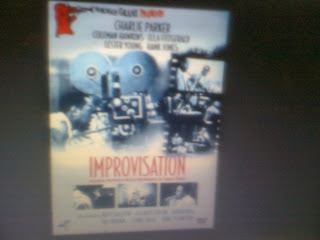BLACK SOCIAL HISTORY Lester Young was one of the true jazz giants, a tenor saxophonist who came up with a completely different conception in which to play his horn, floating over bar lines with a light tone rather than adopting Coleman Hawkins' then-dominant forceful approach. A non-conformist, Young (nicknamed "Pres" by Billie Holiday) had the ironic experience in the 1950s of hearing many young tenors try to sound exactly like him.
Although he spent his earliest days near New Orleans, Lester Young lived in Minneapolis by 1920, playing in a legendary family band. He studied violin, trumpet, and drums, starting on alto at age 13. Because he refused to tour in the South, Young left home in 1927 and instead toured with Art Bronson's Bostonians, switching to tenor. He was back with the family band in 1929 and then freelanced for a few years, playing with Walter Page's Blue Devils (1930), Eddie Barefield in 1931, back with the Blue Devils during 1932-1933, and Bennie Moten and King Oliver (both 1933). He was with Count Basie for the first time in 1934 but left to replace Coleman Hawkins with Fletcher Henderson. Unfortunately, it was expected that Young would try to emulate Hawk, and his laid-back sound angered Henderson's sidemen, resulting in Pres not lasting long. After a tour with Andy Kirk and a few brief jobs, Lester Young was back with Basie in 1936, just in time to star with the band as they headed East. Young made history during his years with Basie, not only participating on Count's record dates but starring with Billie Holiday and Teddy Wilson on a series of classic small-group sessions. In addition, on his rare recordings on clarinet with Basie and the Kansas City Six,Young displayed a very original cool sound that almost sounded like altoist Paul Desmond in the 1950s. After leaving Count in 1940, Young's career becam
e a bit aimless, not capitalizing on his fame in the jazz world. He co-led a low-profile band with his brother, drummer Lee Young, in Los Angeles until re-joining Basie in December 1943. Young had a happy nine months back with the band, recorded a memorable quartet session with bassist Slam Stewart, and starred in the short film Jammin' the Blues before he was drafted. His experiences dealing with racism in the military were horrifying, affecting his mental state of mind for the remainder of his life.
e a bit aimless, not capitalizing on his fame in the jazz world. He co-led a low-profile band with his brother, drummer Lee Young, in Los Angeles until re-joining Basie in December 1943. Young had a happy nine months back with the band, recorded a memorable quartet session with bassist Slam Stewart, and starred in the short film Jammin' the Blues before he was drafted. His experiences dealing with racism in the military were horrifying, affecting his mental state of mind for the remainder of his life.




































































































































No comments:
Post a Comment